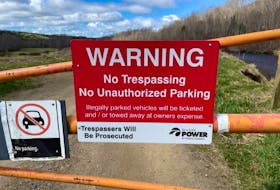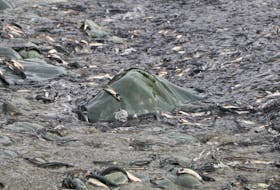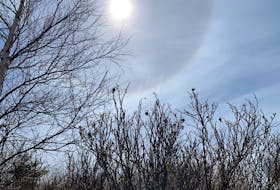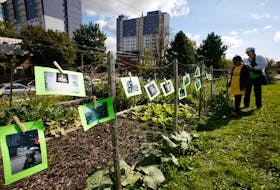It’s commendable that since October, Cumberland County councillors have reserved time on their monthly council meeting agendas to review the controversial topic of hydraulic fracturing and its potential implications for the County. Prior to each meeting they are doing their homework on specific aspects of the topic; and they are scheduled to complete their group study assignment at their April council meeting.
Their study material is the 370 page “Wheeler Report” ordered up by the province of Nova Scotia and published in 2014. It gets its unofficial name from David Wheeler, president of Cape Breton University, who headed up the eleven-person panel that spent six months examining the issue of hydraulic fracturing, more commonly known as “fracking”- a topic almost as contentious as the debates that rage around the notion of “climate change”.
Hydraulic fracturing involves the drilling of wells deep into the earth’s crust, with a high-pressure concoction of water and chemicals used to expand existing fractures in the rock to free the natural gas from its solid state.
It’s argued that the chemicals used in this extraction method can cause damage to the environment, and that the fracturing itself could lead to geological instability, causing earthquakes or pollute surrounding groundwater. Disposing of used fracturing water and dealing with abandoned wells are also seen as serious environmental challenges.
It’s noteworthy that hydraulic fracturing is not a new phenomenon. The Wheeler report stated that “Since the technique was first introduced in the late 1940’s, more than one million wells have been hydraulically fractured worldwide, most of them in the U.S. As of 2014, about 175,000 wells have been hydraulically fractured in Alberta”. The U.S. has also recently surpassed Russia and Saudi Arabia to become the world's leading combined producer of oil and natural gas hydrocarbons.
To add some spice to the local debate, a recent provincial Energy Department analysis pegged our province’s onshore natural gas reserves to be potentially worth up to $60 billion, with a large portion located under Cumberland County as well as in the Windsor area.
Full development of the Cumberland Basin alone could involve the drilling of about 4,000 wells over 40 years. While the royalties would be in the billions, investments in drilling, fracturing, treating wastewater, transporting waste, and creating all the required infrastructure would be completely transformational for the County, for better or for worse, depending how it would all be managed and regulated.
The Wheeler panel received 238 unique submissions from individuals and organisations, and more than 1,200 people attended 11 public meetings that were held across the province to discuss the topic and potential recommendations.
To appreciate what our councillors have taken on, the report’s 370 pages are broken down into eleven chapters, on topics ranging from potential economic impacts, public health protection, to regulatory issues. The executive summary alone consumes five single-spaced text pages of the document but is well worth reading.
The main outcome of the Wheeler panel’s work back in 2014 was a recommendation that hydraulic fracturing not be allowed in Nova Scotia until more research was done and a way was found to give local communities a say in the process.
Not much further was heard locally until September of last year, when about 200 people gathered at the Pugwash Curling Club to listen to two economists, with opposing views – they usually come in pairs - debate the merits and hazards of hydraulic fracturing.
It was a lively session full of opinion and information that prompted our warden Allison Gillis to recommend that his council set aside time at its future meetings to discuss the merits and risks of undertaking hydraulic fracturing in our County. Since October it has been a monthly fixture on the County council meeting agendas.
So far, they have reviewed 192 pages of the 370-page Report, basically covering one chapter at each council meeting. They were up to Chapter 6 of the eleven chapters, pages 166 – 192, “Impacts on Water”, at their last meeting. It’s generally agreed that this exposure to the wide range of issues, as well as familiarisation with the technology and terminology, will help inform them when the time comes to take a position for the county.
Of note, Premier Stephen McNeil recently informed the Halifax Chamber of Commerce that his government would be willing to revisit the hydraulic fracturing opportunity, if there was community support. The form of community buy-in that would be required has yet to be made clear by the provincial government.
In the meantime, the work of our councillors is very timely and essential to being fully informed about any decisions to be made, and if the harms to the community, environment and economy outweigh the benefits. If it is the other way around, we need to be able to say yes with some knowledge -based justification, and to specify the conditions under which that permission is to be granted.
Alan Walter is a retired professional engineer living in Oxford. He was born in Wales and worked in Halifax. He spends much of his time in Oxford, where he operates a small farm. He can be reached at alanwalter@eastlink.ca.

![['Did You Know That with Alan Walter']](https://saltwire.imgix.net/did-you-know-that-with-alan-walter-3009037.jpg?cs=srgb&fit=crop&h=568&w=847&dpr=1&auto=enhance%2Cformat%2Ccompress)







